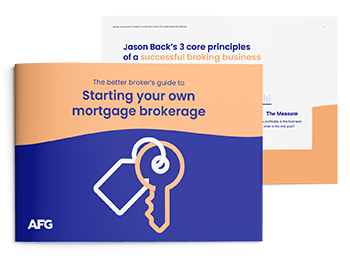If buying or selling for the first time, you might be bamboozled by all the real estate jargon bandied about. Here is our A-Z guide to what it all means.
Accrued depreciation
The total depreciation of a property over a period of time. Usually the difference between the replacement value at purchase and its present appraised value.
Appreciation
An increase in a property’s value over time. Property can appreciate in value due to increased demand, inflation and/or interest rate changes.
Authority to sell
The official contract a vendor signs to give an agent permission to sell a property on their behalf. The contract also usually details the agent’s fees and any advertising costs.
Breach of contract
When a seller or buyer dishonours one of more of the conditions in the sale contract, such as a vendor failing to make agreed repairs or a buyer changing their mind after the cooling-off period.
Bridging finance
A short-term loan to help cover costs between selling one property and buying another.
Buyer’s advocate
Also known as a buyer’s agent, this is a licensed professional who negotiates the sale on a buyer’s behalf. Think of it as the opposite of a regular real estate agent, who works on behalf of the seller. A buyer’s advocate can also help source property for you.
Caveat
A legal notice that someone (the caveator) has claimed a particular unregistered interest in a property.
Certificate of title
The legal document certifying property ownership. If you have a mortgage, your lender will hold the certificate until your loan is repaid.
Conveyancing
The area of law that deals with the transfer of property from one party to another. Your conveyancer represents your interests as a buyer or seller. They will prepare the contract of sale, research the property and its certificate of title, calculate any owed rates and manage settlement with the lender.
Cooling-off period
A period in which a buyer can legally withdraw from a property sale. Different states and territories have different cooling off periods and a termination penalty may still apply if you withdraw. There is usually no cooling-off period when you buy at auction.
Covenant
A condition placed on the use of a property, such as a height restriction or a stipulation about building materials.
Depreciation
The wear and tear on a building or fixtures, which you can claim on your income tax if your property is for investment and built after July 1985. You will need a quantity surveyor to prepare a schedule of depreciation on your property to calculate how much you can claim.
Easement
A section of land registered on a property title that someone is entitled to use even though they are not the owner, e.g. a shared driveway.
Encroachment
When a neighbour violates the rights of an adjoining property owner by building something on their land.
Encumbrance
A restriction or notice placed on land, which is usually listed on the certificate of title. A covenant is an example of an encumbrance, as is an easement (see above). Governments can also register an encumbrance on a property to let buyers know of a prior land use.
Equity
The value built up in a property minus any money owed.
Lenders’ Mortgage Insurance (LMI)
The cost of securing a loan when you need to borrow more than 80 per cent of a property’s value. LMI covers the lender’s risk should the property value fall, even though the insurance is paid by the borrower.
Negative gearing
Borrowing money to buy an investment property and the cost of owning that property (interest repayments, rates, repairs etc.) is more than the income received from rent. In other words, you make a loss, which can be claimed against your income tax.
Off the plan
Buying a dwelling, usually an apartment, before it is built.
Strata title
Ownership of an individual unit in an apartment or townhouse complex, which also has shared areas, such as a driveway, garden or swimming pool. These shared areas are owned and maintained collectively with the other unit owners.
Tenants in common
When two or more people own a property and each person’s ownership interest is specified as a certain percentage.
Title search
A title search researches the historical and current ownership and usage of a property.
Torrens title
When a purchaser owns both the house and the land on which it is built. This is the most traditional form of home ownership in Australia.
Zoning
The usage category applied to a parcel of land by a local council or other government authority. Zoning will determine, for example, if you can build units or operate a business on a property.









